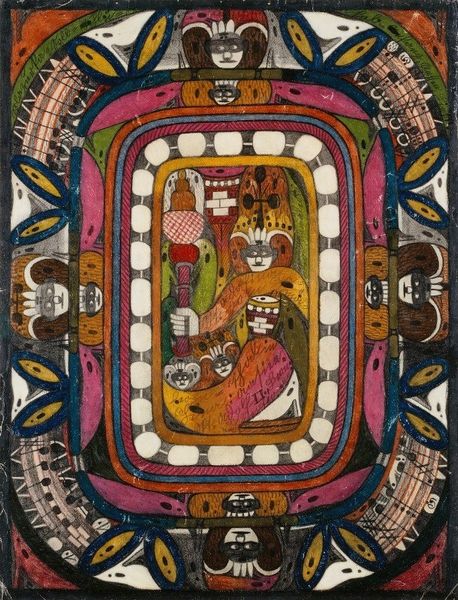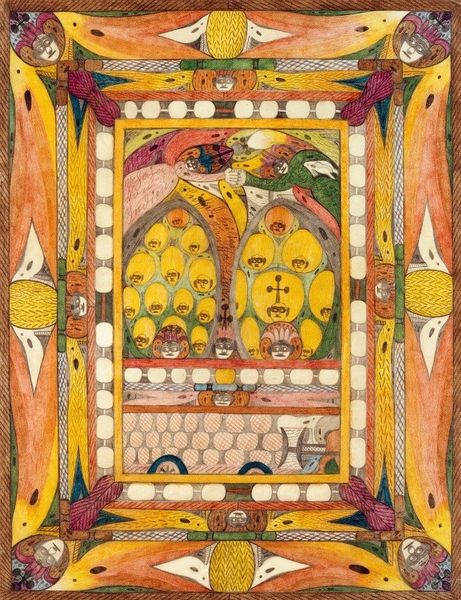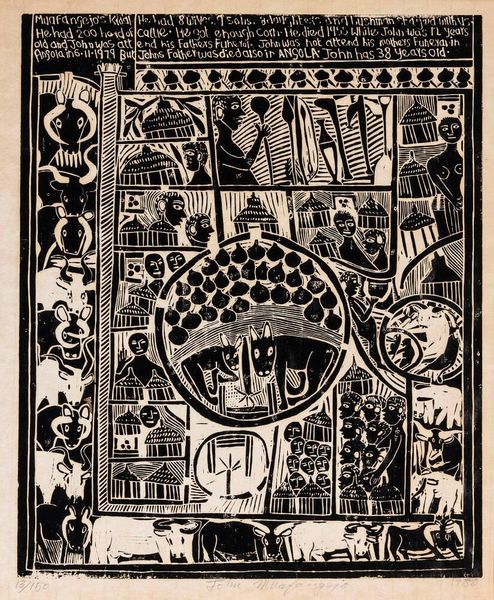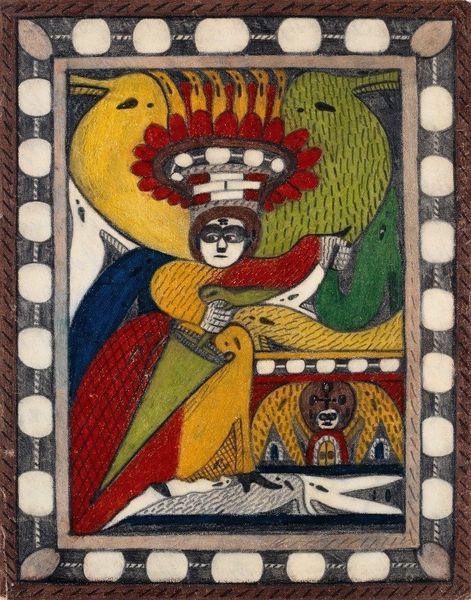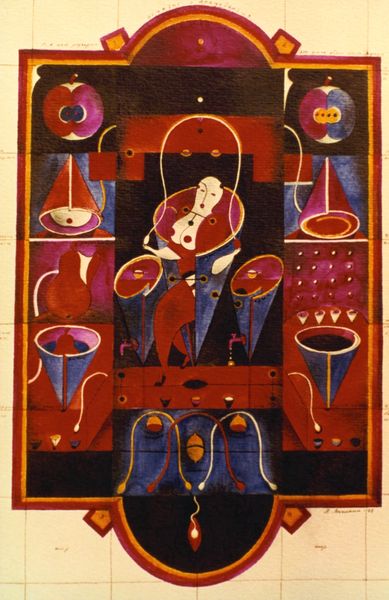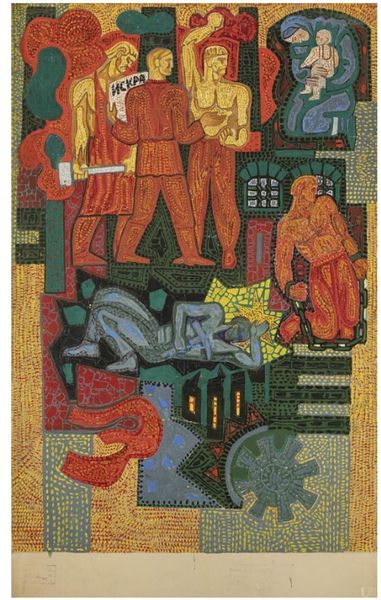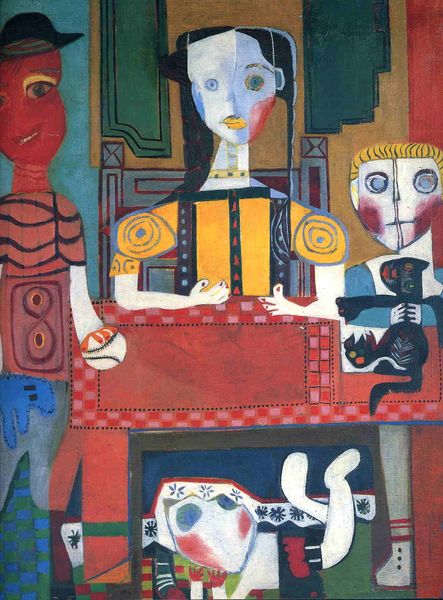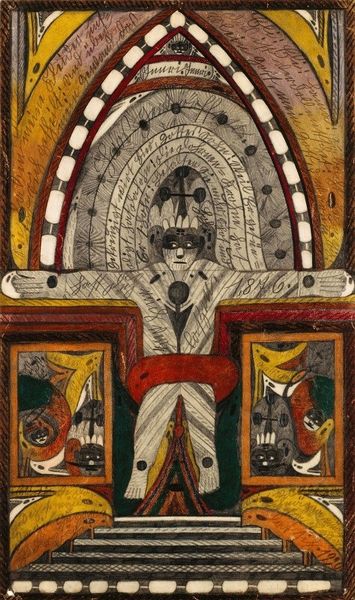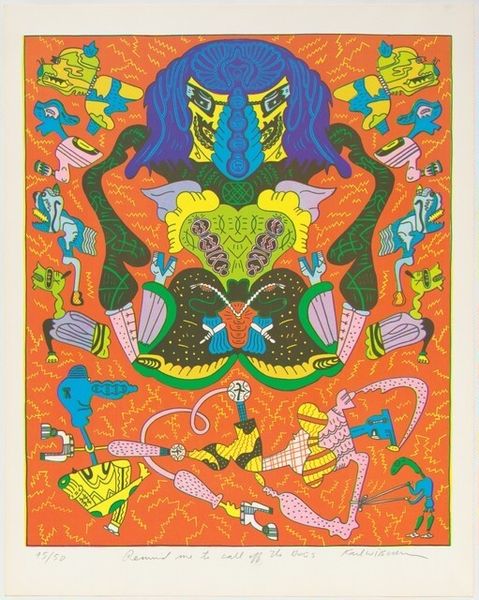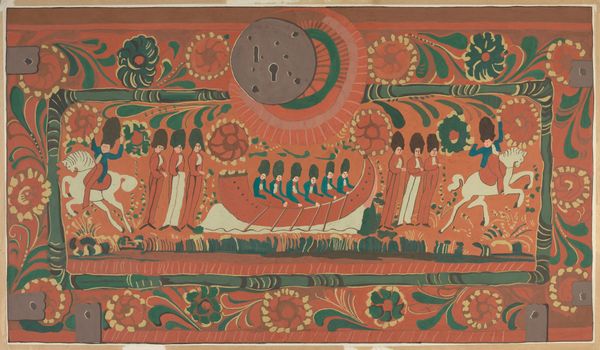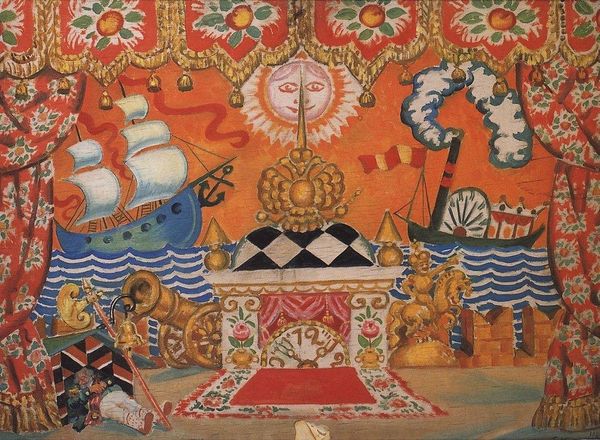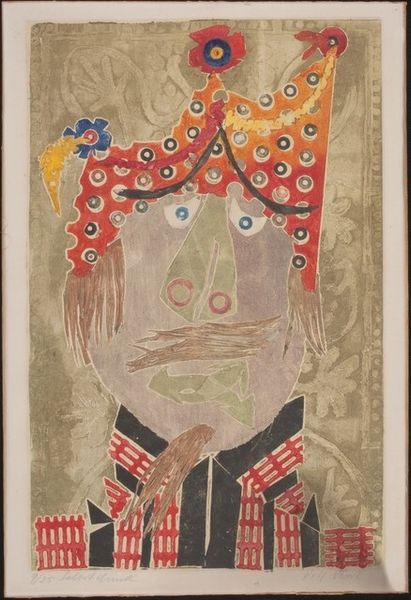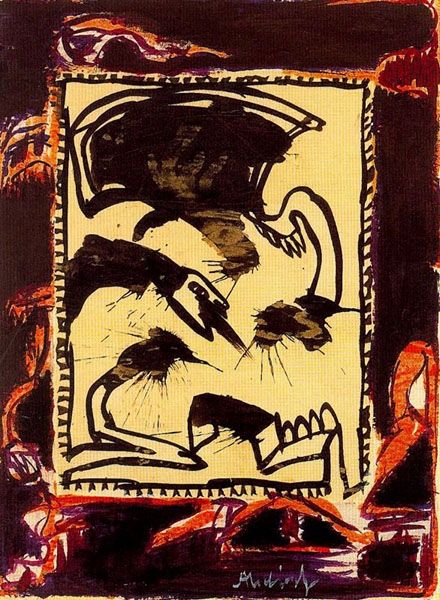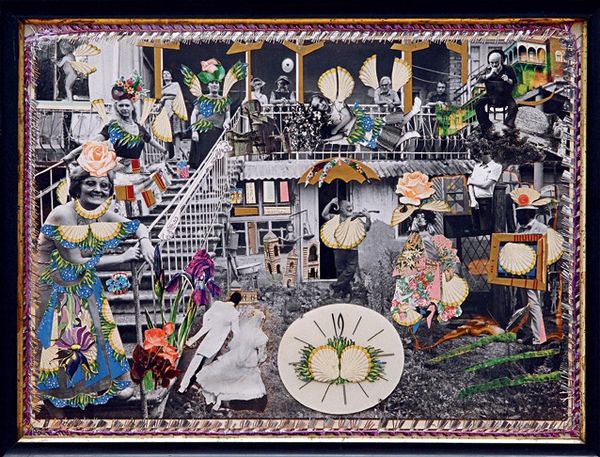
tempera, painting
#
tempera
#
painting
#
asian-art
#
naive art
#
orientalism
#
symbolism
#
painting art
Copyright: Public domain US
Editor: Here we have Martiros Sarian's "Buddhist Still Life," painted in 1919 using tempera. It has such a curious mix of objects. How would you begin to interpret this piece? Curator: As a materialist, I'm drawn to the tangible aspects – the tempera itself, the visible brushstrokes that reveal Sarian’s hand. I'm curious about the social context, like how and why Sarian chose to depict these specific objects together, some of which seem mass produced for trade. Consider the contrast between the painted backdrop which likely represents a carefully crafted religious object versus the seemingly commonplace figures in the foreground. What does that contrast suggest? Editor: That's fascinating! So you're saying that the *how* the objects were made, matters as much as *what* they represent symbolically? The labor behind each element becomes important? Curator: Precisely. And further, we can consider the conditions of production. Where did Sarian source his pigments? Who produced the backdrop? How did these figurine objects become accessible to Sarian to begin with? The painting then transforms from a simple "still life" into a layered document of cultural exchange and material conditions. Editor: It changes my understanding to consider them as commodities within a network, rather than just symbolic figures in isolation. Curator: Exactly. It's also worth exploring how the commodification of religious and cultural objects alters their perceived value and meaning within the context of art and consumption. This orientalist perspective is part of it too, wouldn’t you agree? Editor: I do. I never thought about it that way. Seeing the work through the lens of material production adds a new layer. Curator: I’m glad you agree, that thinking of art with materiality is just one powerful way to interpret art, where the means of making matters just as much as the image.
Comments
No comments
Be the first to comment and join the conversation on the ultimate creative platform.
